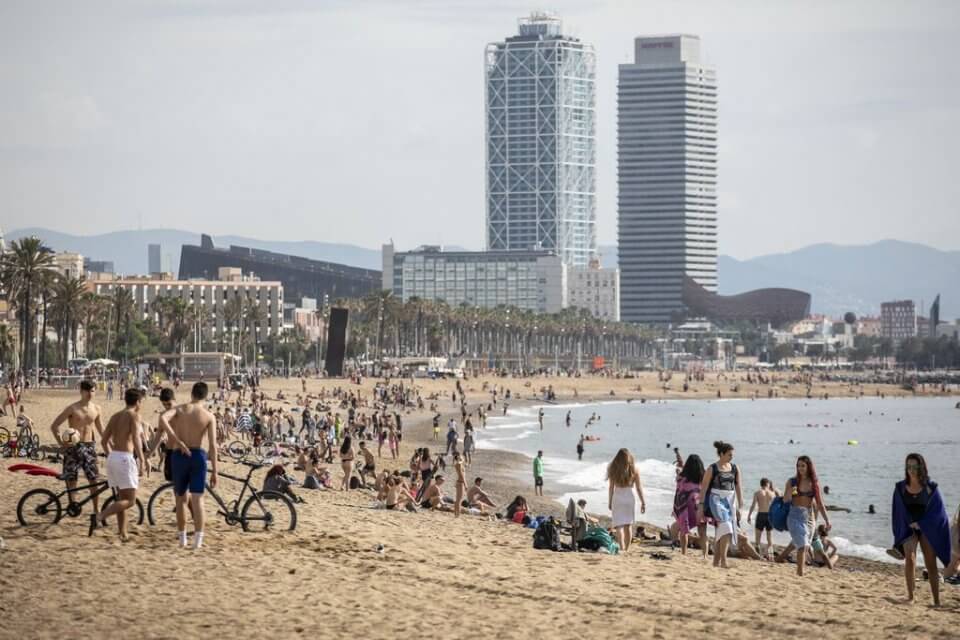Smoking has been prohibited on four of the ten beaches in Barcelona (Sant Miquel, Somorrostro, Nova Icària and Nova Mar Bella) from Saturday 29 May until 12 September this year, as a pilot test – first announced back in February. The aim of the restrictions is twofold: to protect the environment and the health of beachgoers.
An information campaign is also being launched alongside the smoking ban – highlighting the need to protect the population’s health, especially that of children, as well as focusing on the damage caused to marine ecosystems by the pollution generated by cigarette butts.
Environmental staff will be responsible for warning people on the beach of the ban, but if a person ignores the order and continues smoking, then local Guardia Urbana police officers could be notified.
Current regulations do not allow Barcelona City Council to actually apply sanctions, but bathers will be told to stop smoking by police officers, and if they then refuse to do so, they could be fined for disobedience.
Barcelona City Councillor for Climate Emergency, Eloi Badia, explained that authorities ‘can urge a citizen to stop smoking, and if they don’t, they can be sanctioned for contempt of authority’ but that the idea is to give out fines ‘as little as possible’.
Annually, 13.8% of deaths in Barcelona are attributed to tobacco consumption each year – some 2,200 people. The campaign will also focus on the danger of second-hand smoke, considered particularly harmful for children. A recent study revealing that more than 135,000 cases of respiratory diseases and over 3,000 hospitalisations in children aged under 12 in Spain are attributed to passive smoking.

Smoking has been banned in public outdoor spaces related to children in Spain since 2010 – however, a study from last year concluded that in 11 European cities, including Barcelona, 41% of playgrounds and 46% of primary school entrances, contained traces of tobacco smoke.
According to the National Committee for the Prevention of Smoking, approximately five billion cigarette butts end up in the sea each year. Discarded cigarettes contain substances such as cadmium, iron, arsenic, nickel, copper, zinc, or manganese – some of which are toxic to both human and marine life.
Click here for all our reports related to the Environment
ALSO READ (16/8/20): Spain imposes strict new measures on nightlife across the country
ALSO READ (28/7/20): Catalonia to impose fines of up to €15,000 for ‘botellones’ – street drinking parties
.


